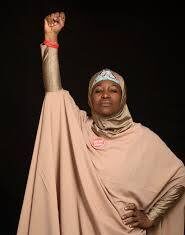Assistant Editor (South West), MUYIWA OLALEYE, x-rays issues and considerations that may play key roles in Oyo State governorship election.
Ahead of the April 11 governorship elections, 12 candidates are set to do battle for Oyo Government House. They are Governor Abiola Ajimobi of the All Progressives Congress (APC), Adebayo Alao-Akala of Labour Party (LP), Senator Rashidi Ladoja of Accord Party (AP), Senator Teslim Folarin of Peoples Democratic Party (PDP) and Oluseyi Makinde of Social Democratic Party (SDP).
Others are Hakeem Olayiwola of Kowa Party (KP), Segun Olalere of All Progressives Grand Alliance (APGA), Adeolu Sosanya of African Peoples Alliance (APA) and Sade Mustapha of New Nigerian Peoples Party (NNPP).
The rest are Taiwo Otegbeye of Action Alliance (AA), Akinsipe Adebola of Allied Congress Party of Nigeria (ACPN) and Yinusa Ayandoye of the Democratic Peoples Party (DPP).
Even with the line-up, there are indications that the race would be for flag-bearers of the PDP, AP, APC, SDP and LP.
Interestingly, except the LP candidate, the others considered four serious contenders are from Ibadan, the state capital. PDP’s Folarin and SDP’s Makinde hail from Ona Ara Local Government Area; Ladoja of AP is from Ibadan North; Ajimobi is from Ibadan South-East; while LP’s Alao-Akala is from Ogbomosho.
This development did not come as a surprise, as many political observers had predicted that most of the political parties would likely field candidates from Ibadan as their flag-bearer. Many tie this consideration to the 2011 voter registration exercise which indicated that the capital city had over 60 per cent of the registered voters at the time. Political parties, incidentally, do not envisage this will change in this year’s election.
But unlike the 2011 election when Ajimobi and Ladoja were the two front-runners, the emergence of four governorship candidates from Ibadan could change the election dynamics and make this year’s contest entirely different, it has been argued. Analysts already predict splitting of votes in Ibadan among the four candidates with none having a clear-cut advantage over the others.
Also, though their votes cannot particularly determine who governs the state for the next four years, civil servants in the state have over the years proven they are a force to reckon with during elections. This is not expected to be different in this election. The workers are known to travel the same route when it comes to decisions on who to vote as governor of the state, and any one of the candidates that eventually gets their blessing often carries the day.
Traditional rulers in the South West also wield enormous influence in their various domains. Over the years, and due to the antics of politicians, many of them have become empowered one way or another and now play significant roles and determine, to a large extent, who rules the states.
The Alaafin of Oyo, the Olubadan of Ibadan and the Soun of Ogbomoso are prominent traditional rulers that no politician would underestimate. Apart from being the leading traditional rulers in three out of the key five sections of the state, they are also first class monarchs whose influence commands attention in the state.
Alaafin, Oba Lamidi Adeyemi III, is, for instance, a force to reckon with when it comes to politics in Oyo. His influence is huge in four local government councils that constitute Oyo town and even extends into other towns that used to be under the old Oyo Empire, some of who still pay obeisance to the monarch.
To demonstrate how much influence the Alaafin wields, candidates from the different political parties have been visiting his palace to get what they call “royal blessings” – euphemism for seeking his favour in the elections.
His son, Prince Akeem Adeyemi, is the immediate past Caretaker Committee Chairman of Atiba Local Government Council and would be contesting the House of Representatives seat for Afijio/Oyo West/East/Atiba Federal Constituency on the platform of the APC. One of the daughters of the monarch, Princess Adetutu Adeyemi-Aigbe is also the Commissioner for Culture and Tourism in the state.
The Soun of Ogbomoso, Oba Jimoh Oladunni Oyewumi Ajagungbade III, is also a traditional ruler of worth in Ogbomoso, where Alao-Akala hails from. Incidentally, the daughter of the monarch, Princess Olufunke Oworu, is the Commissioner for Trade, Investment and Co-operatives while her brother, Prince Akeem Oyewumi, is the APC House of Representatives candidate for Ogbomoso North/South/Orline Federal Constituency in the election.
Oba Samuel Odulana, Odugade I, the Olubadan of Ibadan, is not known to be partisan, but politicians still seek to curry his favour because they know the strength and influence of the traditional institution he represents.
In 2011, Alao-Akala, then the governor, literally paid dearly for “looking the monarch in the eye”. But in this current dispensation, one of the sons of the monarch, Prince Gbade Lana, is the Commissioner for Information. Equally, based on the recommendation of the Central Council of Ibadan Indigenes (CCII), the umbrella organisation for all indigenous, Ibadan clubs and associations, the Olubadan conferred the chieftaincy title of Aare Atunluse of Ibadan land on Governor Ajimobi for improving the physical environment of the town through his urban renewal programme.
Some analysts have opined that with four notable Ibadan indigenes in the race for the Agodi Government House, a development expected to whittle down the influence of the Ibadan factor, Oke-Ogun, which has 10 local government areas, could provide the battle ground for the flag-bearers.
The various traditional rulers in the zone also have their political leanings and would play a major role. Political gladiators from Oke-Ogun are also spread across the major political parties and would be matching strength for strength in the forthcoming polls. This notwithstanding, it has been estimated that the zone would still play huge role in determining who eventually emerges the governor.
Despite what promises a stiff contest, Ajimobi seems the most favoured. This is especially as there seems to be little unity of purpose among the opposition parties to close ranks and move against the incumbent.
However, other factors that could also affect the outcome of the election include acceptance of the various candidates by the general public, performance of the incumbent and other extraneous factors that might come up at the last minute.












